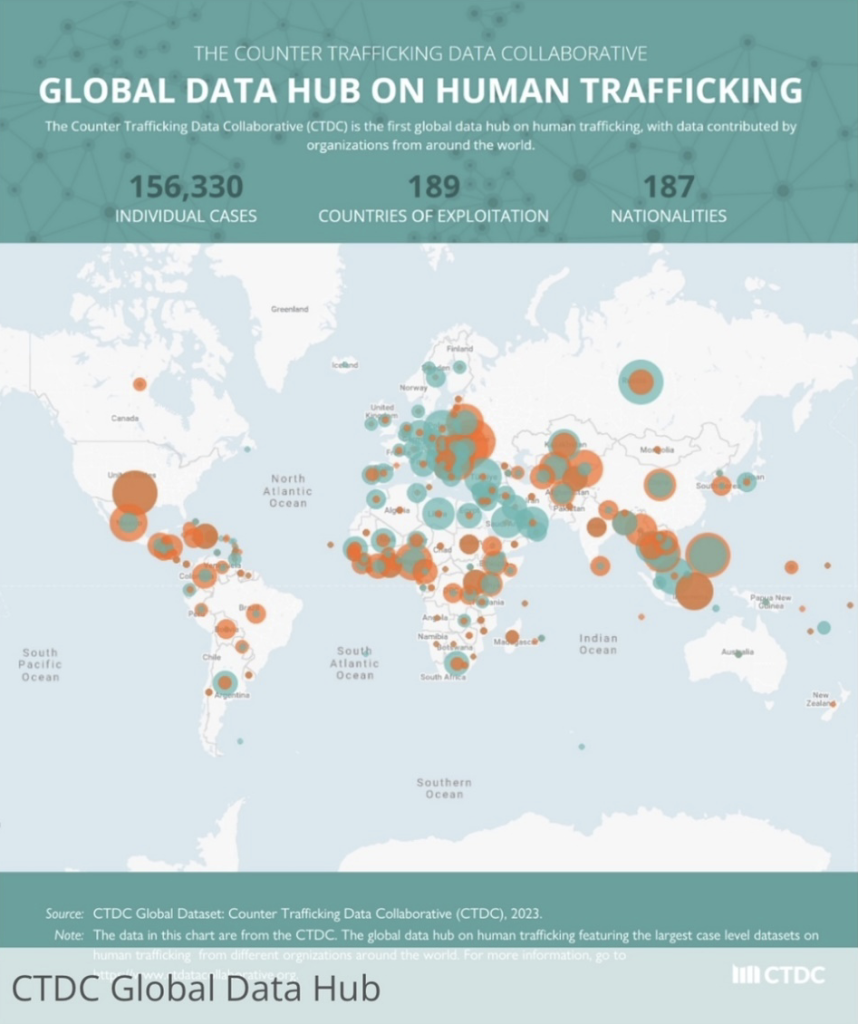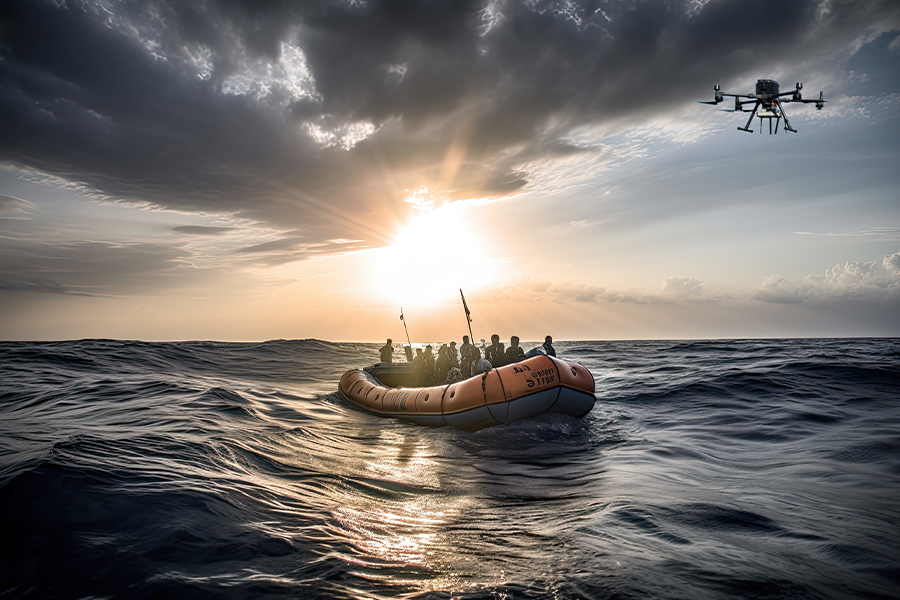It is a contentious issue with mixed opinions, emotions and political connotations. What is clear and indisputable is the unnecessary and needless loss of life and the despicable criminal behaviour of human traffickers and organised crime gangs, making lucrative and illegal business from individual’s misery and misplaced hopes and aspirations.
The diagram from Counter Trafficking Data Collaborative (CDTC) shows 189 exploited countries with over 150,000 individuals affected in 2023.

US. authorities encountered migrants nearly 2.4 million times in 2022 on the US/Mexico border. The InSight Crime report says that if even half of that represented migrants who paid $10,000 in smuggling fees and bribes, the market would be worth close to $12 billion per annum.
On the English Channel approximately 46,000 people were detected crossing in small boats in 2022; in the first half of 2023, the number was close to 29,000. Overall numbers of small boat crossings between France and the UK has increased substantially in the last few years.
In the Mediterranean more than 2,500 have died or gone missing as 186,000 crossed the Mediterranean in 2023 with 130,000 landing in Italy alone.
INTERPOL and AFRIPOL’s first joint operation against human trafficking and migrant smuggling in 2023 resulted in more than 1,000 arrests worldwide and thousands of victims detected.
These are just some of the statistics in this terrible crime and abuse of human misery. The figures are stark and shocking, with the consequences of human trafficking not stopping at successfully moving people across borders, but then these victims fall into the trap of modern slavery with no ability to benefit from a new life from undertaking such a high risk life threatening journey.
The possible benefits, pitfalls, economic challenges or advantages of open borders and free movement or if economic migrants should be accepted or only accepted if individuals facing persecution from political or religious beliefs, sexual orientation or are homeless from the aftermath of natural disaster are constantly discussed. These conversations will continue for many years to come as involuntary migration is likely to increase over the next decade.
Governments, law enforcement, border control, intelligence, military, are involved in trying to stop the illegal trade but does require an approach including group, cross-border, country, national, regional and global collaboration to look to effectively disrupt, and make human trafficking a non-viable business operation.
The use of advanced technologies including UAV’s autonomous monitoring, data aggregation and analytics, artificial intelligence, blockchain, facial recognition, satellite imagery, cellphone analytics, financial monitoring, web scraping, and more used within the life cycle of human trafficking can identify possible victims and criminals before they take the hazardous journey and put at risk. If they successfully survive this life threatening journey they can then fall into modern slavery and abuse.
Revector can provide one intelligence input to surveillance activities to support multi-agency operations to assist in disruption of this terrible crime, identifying both migrant and criminals phones and either monitoring, alerting or building intelligence on criminal behaviour without needing to intercept or take any personal information from migrants devices. Stopping migrants on the beaches before getting into unsafe and overloaded boats, stopping lorries before they start the long and hazardous journey across borders, catching human traffickers in the act, and saving lives.


